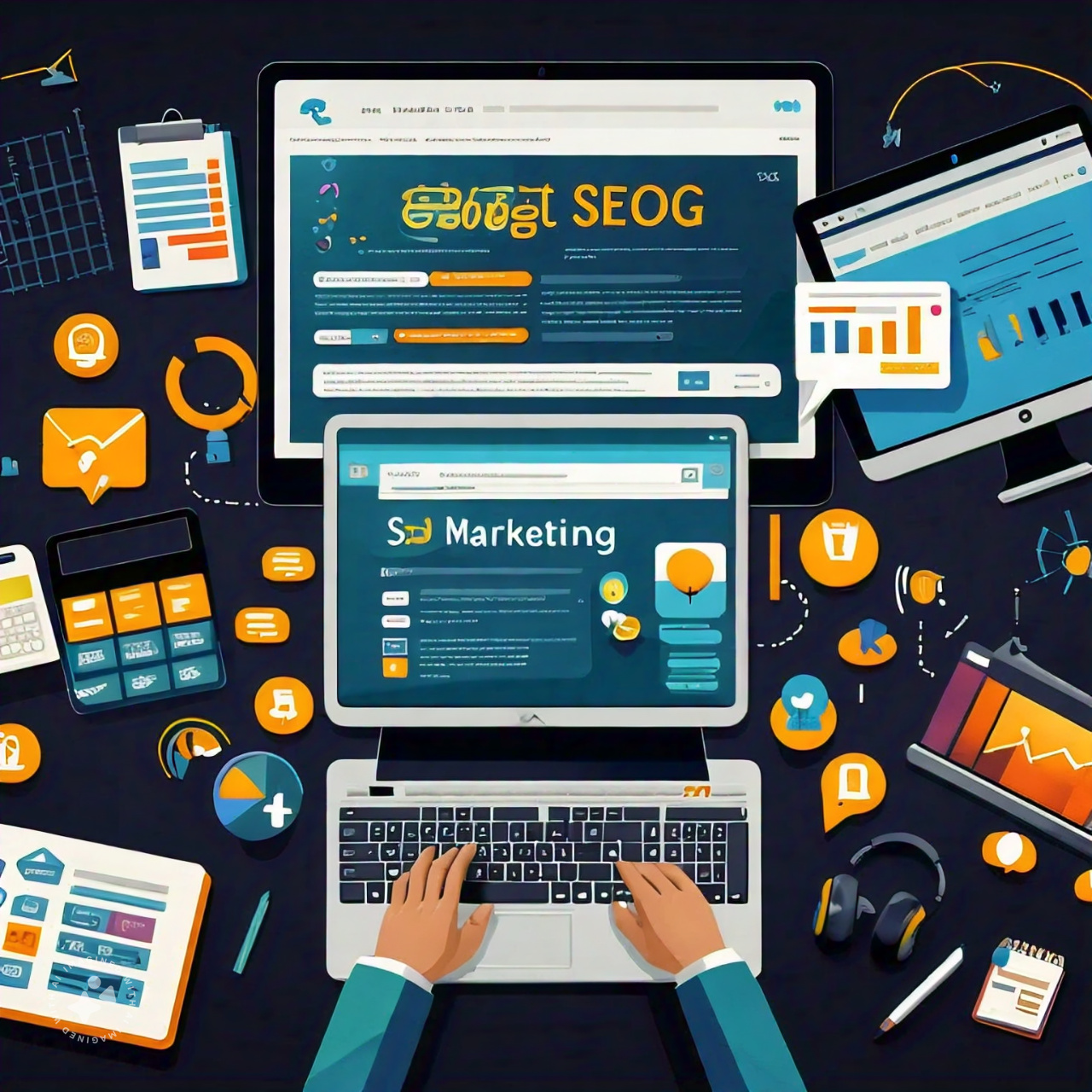Search Engine Optimization (SEO) is one of the most vital components of digital marketing, as it directly affects a website’s visibility and reach. With more than 90% of online experiences beginning with a search engine, businesses need to optimize their websites to appear in top search results to attract organic traffic. This blog post will delve into the significance of SEO in digital marketing, exploring its benefits, key elements, and the reasons why every business should prioritize it.
Boosting Organic Traffic and Visibility
One of the primary goals of SEO is to increase a website’s visibility in search engine results pages (SERPs). When users search for information, products, or services, they are more likely to click on one of the top results. In fact, studies show that the first five organic results account for over 67% of all clicks. This means that ranking higher in search results significantly boosts your website’s chances of attracting potential customers.
Organic traffic is also cost-effective compared to paid advertising. While pay-per-click (PPC) campaigns require ongoing investment, SEO focuses on improving the quality of your site, making it more attractive to search engines and users alike. A well-optimized site not only draws in traffic but also builds trust with users who see it consistently appearing in top search results.
Building Credibility and Trust
SEO helps establish credibility and trust for your brand. Search engines like Google prioritize websites that provide a great user experience, high-quality content, and reliable information. By following SEO best practices, such as creating valuable content, earning backlinks, and optimizing for user experience, you can improve your website’s ranking and establish your brand as an authority in your industry.
For many users, top search results are viewed as more credible and trustworthy than paid advertisements. When your website consistently appears in organic search results for relevant queries, it signals to potential customers that your business is reliable and provides value. This credibility is essential for brand building, especially in competitive markets.
Improving User Experience
Effective SEO goes beyond keywords and links; it also involves enhancing the overall user experience. Google’s algorithms assess factors such as site speed, mobile-friendliness, and ease of navigation when ranking websites. A well-optimized site provides a seamless and enjoyable user experience, which can result in higher engagement and lower bounce rates.
Moreover, optimizing content for SEO often means making it more informative, readable, and accessible. This not only satisfies search engines but also caters to the needs of your audience, who are looking for answers to their questions or solutions to their problems. By focusing on user experience, you create a website that appeals to both search engines and users, leading to better rankings and increased engagement.
Staying Ahead of the Competition
In today’s digital landscape, most businesses are investing in SEO to increase their online presence. If your competitors are already optimizing their websites and you are not, they have an advantage over you in attracting potential customers. Therefore, it is crucial to invest in SEO to remain competitive.
Staying ahead of the competition through SEO also means keeping up with industry trends and algorithm updates. Google frequently updates its search algorithms to deliver more relevant results, so businesses must stay informed about these changes and adapt their strategies accordingly. Consistently improving your SEO efforts helps you outperform competitors and maintain your position in the market.
Cost-Effectiveness Compared to Paid Advertising
While paid advertising can deliver immediate results, it comes at a cost. The moment you stop paying for ads, the traffic stops. SEO, on the other hand, is a long-term investment that can continue to drive traffic to your site over time, even if you scale back on other marketing activities. Once your website ranks well for relevant keywords, you can attract organic traffic without the continuous expense of PPC campaigns.
SEO also complements other digital marketing strategies, such as content marketing and social media. By integrating SEO practices into your overall strategy, you can maximize the return on investment (ROI) from your marketing efforts. For example, sharing SEO-optimized content on social media can increase its reach and boost your rankings, driving more traffic to your site.
Key Elements of SEO to Focus On
There are several key elements of SEO that businesses should focus on to optimize their digital marketing efforts:
- Keyword Research: Identifying the right keywords that your target audience is searching for is crucial. Use tools like Google Keyword Planner or Ahrefs to find relevant keywords with high search volume and low competition.
- On-Page Optimization: This involves optimizing content, headings, meta descriptions, and images for the chosen keywords. It also includes improving site structure and internal linking to make the site more accessible for search engines.
- Technical SEO: Ensuring that your website’s technical aspects, such as site speed, mobile-friendliness, and security (SSL), are optimized for search engine crawlers.
- Content Creation: High-quality, relevant, and informative content helps improve rankings and engages your audience. Regularly updating your content keeps it fresh and aligns with current trends.
- Link Building: Earning backlinks from reputable websites signals to search engines that your site is a trusted authority, which can help improve rankings.
SEO plays a critical role in digital marketing, serving as the foundation for online visibility and brand growth. By increasing organic traffic, building credibility, enhancing user experience, and staying competitive, SEO provides numerous benefits that other marketing tactics cannot easily match. While it may take time to see results, the long-term advantages of a strong SEO strategy make it a worthwhile investment for any business looking to thrive in the digital world.
Incorporating SEO into your digital marketing efforts will help you reach a broader audience, establish your brand as an industry leader, and achieve sustainable growth. As search engines continue to evolve, staying up to date with the latest SEO practices will be key to maintaining and improving your online presence.

